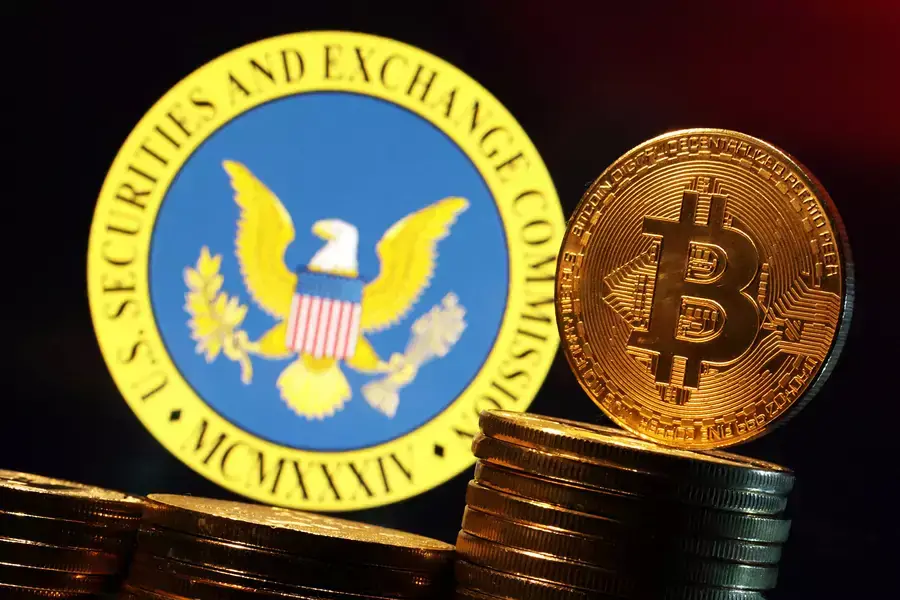Cyber Week in Review: January 12, 2024

Securities and Exchanges Commission approves first Bitcoin exchange traded funds
The U.S. Securities and Exchange Commission (SEC) voted to allow investors to more easily buy and trade cryptocurrency, by allowing companies to sell spot exchange-traded funds made up of cryptocurrency Bitcoin, the same vehicles used to sell stocks and bonds, to investors. The SEC approved eleven firms’ applications for Bitcoin ETFs, including BlackRock, Fidelity Investments, and Grayscale Investments, among others. The SEC had previously refused to approve Bitcoin ETFs, saying that they were too risky and prone to fraud to be safe for most investors. At a CFR event moderated by CFR President Mike Froman in December 2023, Gensler said cryptocurrencies had “some similarities to the 1920s… it’s rife with fraud and manipulation.” SEC chairman Gary Gensler said that the approvals were not a result of a change in the SEC’s thinking on the safety of Bitcoin ETFs, but rather the consequence of a court case won by Grayscale Investments in August 2023 which said that spot Bitcoin ETFs were similar to another kind of already approved cryptocurrency ETF, Bitcoin futures ETFs. The SEC Twitter/X account announced the decision a day before the agency itself; however, the SEC quickly deleted the post and claimed its account had been hacked. The fake announcement caused a two thousand dollar spike in Bitcoin prices.
Ransomware attack hits Paraguay’s largest telecommunications company
Tigo, Paraguay’s largest telecommunications company, was hit by a ransomware attack on Thursday, January 4. The attack, launched by the ransomware gang BlackHunt, encrypted around three hundred servers maintained by the company. The attack reportedly affected several of Tigo’s customers, including several government agencies, and the Paraguayan Army’s cybersecurity team called on organizations in the country to work to harden their own networks and said that the attack was having a significant impact on the country’s economy. The director of Paraguay’s main civilian cybersecurity agency (CERT-PY) said that he hoped that Tigo was working with the FBI and U.S. National Security Agency on the hack, but that Tigo had been very secretive about its response to the incident. Tigo issued a statement denying the scope of the disruption, saying that “outside of the specific services of the corporate segment cited, no internet, phone or wallet services have been affected.”
Huawei says it is ending lobbying efforts to undo U.S. ban
More on:
Chinese technology manufacturer Huawei said it is ending its efforts to lobby to reverse restrictions on its ability to sell telecommunications equipment and other products in the United States, according to a report from Bloomberg. Huawei’s last two U.S. lobbyists, Jeff Hogg and Donald Morrissey, left the company in recent months, and it appears no replacements for them have been hired. Huawei faced growing efforts to restrict and ban its products over national security concerns between 2017 and 2022, with President Trump signing an executive order in 2019 prohibiting U.S. companies from doing business with Huawei and President Biden strengthening that stance in 2022 by preventing the import of any new Huawei telecommunications equipment. The U.S. government’s push to restrict Huawei has expanded abroad as well, with Germany launching a review of Huawei and another Chinese telecommunications company, ZTE, in March 2023.
Chinese research agency says it cracked Apple’s AirDrop encryption
A Chinese cybersecurity research agency, Wangshen Dongjian, associated with the Beijing Municipal Bureau of Justice says that it managed to crack the encryption of Apple’s AirDrop file sharing function, allowing authorities to identify the phone numbers and emails associated with devices sharing content via AirDrop. AirDrop has been an important tool for protestors in China and Hong Kong to share information clandestinely, and was widely used in 2019 pro-democracy protests in Hong Kong and to disseminate images of a protestor in Beijing holding a postercalling President Xi Jinping a “despotic dictator.” Authorities have reportedly already used the breakthrough to identify and arrest people who shared documents via AirDrop at different protests. AirDrop has been a source of contention between Apple and the Chinese government, with Apple making a controversial change to AirDrop settings in November 2022 for iPhones in China by only allowing the “everyone” sharing option for AirDrop to be turned on for ten minutes at a time.
Meta adds restrictions on teens’ use of Facebook and Instagram
Meta, the parent company of social media platforms Facebook and Instagram, will place accounts of teenagers under eighteen years old in the most restrictive content setting, known as Sensitive Content Control in Instagram settings and Reduce in Facebook settings, in the coming weeks. Teenagers will not be able to opt out of the new settings, which will reduce the amount of sensitive content teens come across from people they don’t follow. The changes will also automatically restrict content related to self-harm, which will not be shown to teens, even if it’s from someone they follow. The changes will also introduce a recommended setting that restricts who can share content from teens and prevent users who don’t follow teens from sending them messages. The new restrictions come as forty one states and the District of Columbia have sued Meta alleging that it built its products with addictive features that harm young users.
More on:
 Online Store
Online Store